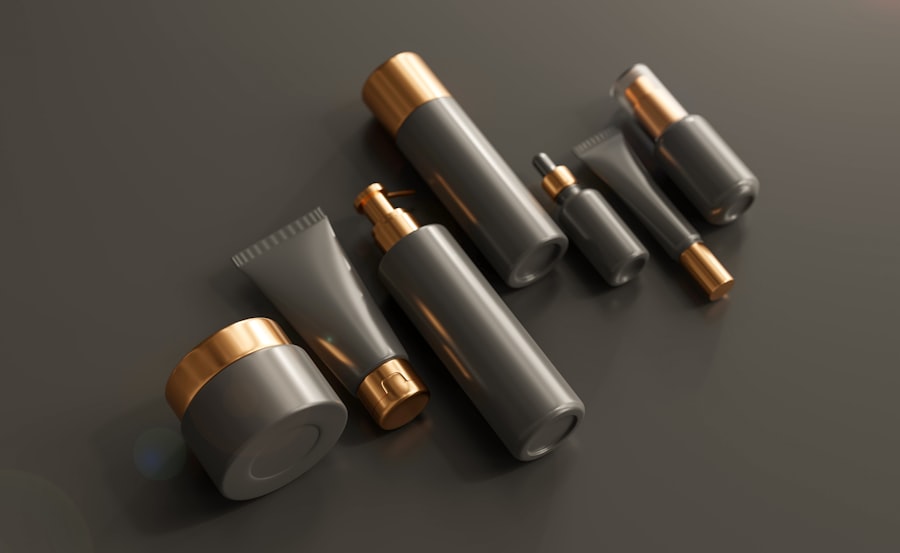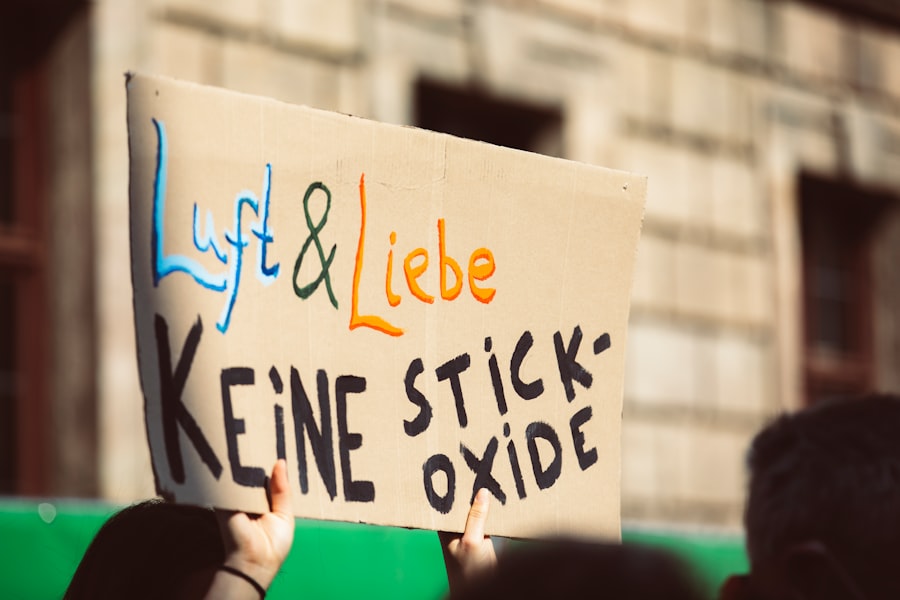Aftercare is a crucial component of any cosmetic procedure, particularly when it comes to laser hair removal. You may not realize it, but the steps you take after your treatment can significantly influence the results you achieve. Proper aftercare not only enhances the effectiveness of the procedure but also minimizes potential side effects and complications.
By understanding the importance of aftercare, you empower yourself to maintain the health of your skin and ensure that your investment in laser hair removal pays off. When you undergo laser hair removal, your skin experiences a degree of trauma, even if it is minimal. The laser targets hair follicles, causing them to heat up and eventually fall out.
This process can lead to temporary redness, swelling, or discomfort in the treated area. By adhering to a well-structured aftercare routine, you can help your skin recover more quickly and effectively. This means that you can enjoy smoother skin without the hassle of unwanted hair while minimizing the risk of adverse reactions.
Key Takeaways
- Aftercare is crucial for the success of laser hair removal treatment
- Immediate post-treatment care includes keeping the treated area clean and moisturized
- Long-term aftercare strategies involve protecting the skin from sun exposure and avoiding harsh products
- Managing discomfort and redness can be done with the help of soothing creams and cold compresses
- It’s important to monitor the treated area for signs of complications and follow up with the laser hair removal provider for any concerns
Immediate Post-Treatment Care
Minimizing Irritation
Avoid touching or scratching the treated area, as this can exacerbate irritation and lead to complications. Instead, consider applying a cool compress to soothe any discomfort. This simple step can help reduce inflammation and provide immediate relief.
Hydration and Moisturizing
Drinking plenty of water is crucial for immediate post-treatment care. It will not only keep your body hydrated but also support your skin’s healing process. Additionally, you may want to apply a gentle, fragrance-free moisturizer to the treated area. This will help lock in moisture and create a protective barrier against environmental irritants.
Optimal Recovery
Remember, your skin is in a delicate state right after treatment, so being mindful of what you apply is crucial for optimal recovery.
Long-Term Aftercare Strategies

As you move beyond the immediate post-treatment phase, it’s important to adopt long-term aftercare strategies that will support the health of your skin and enhance the results of your laser hair removal. One effective approach is to establish a consistent skincare routine that includes gentle cleansing and moisturizing. Opt for products that are specifically formulated for sensitive skin, as these will be less likely to cause irritation.
In addition to maintaining a regular skincare regimen, consider incorporating sun protection into your daily routine. Wearing sunscreen with a high SPF is essential for safeguarding your skin from harmful UV rays, which can lead to pigmentation issues and hinder the healing process. By prioritizing sun protection, you not only protect your skin but also ensure that the results of your laser hair removal remain visible and vibrant for years to come.
Managing Discomfort and Redness
| Discomfort and Redness Management Metrics | 2019 | 2020 | 2021 |
|---|---|---|---|
| Number of reported discomfort cases | 350 | 320 | 300 |
| Percentage of cases with reduced redness | 75% | 80% | 85% |
| Average time to discomfort relief (in minutes) | 20 | 18 | 15 |
Experiencing discomfort or redness after laser hair removal is common, but there are effective ways to manage these symptoms. Over-the-counter pain relievers such as ibuprofen or acetaminophen can help alleviate any discomfort you may feel in the hours or days following your treatment. However, it’s essential to consult with your provider before taking any medication to ensure it’s appropriate for your situation.
In addition to medication, applying soothing topical treatments can also be beneficial.
Remember to avoid any harsh scrubs or exfoliants during this time, as they can further irritate your skin and prolong recovery.
Protecting the Treated Area from Sun Exposure
One of the most critical aspects of aftercare following laser hair removal is protecting the treated area from sun exposure. Your skin will be more sensitive and vulnerable after treatment, making it essential to shield it from harmful UV rays. You should avoid direct sunlight for at least two weeks post-treatment, as this will help prevent complications such as hyperpigmentation or sunburn.
When you do need to go outside, wearing protective clothing is a smart choice. Long sleeves, wide-brimmed hats, and sunglasses can all help shield your skin from UV exposure. Additionally, applying a broad-spectrum sunscreen with an SPF of 30 or higher is vital for protecting the treated area.
Make it a habit to reapply sunscreen every two hours if you’re spending extended periods outdoors. By taking these precautions, you can ensure that your skin remains healthy and that the results of your laser hair removal are preserved.
Avoiding Irritants and Harsh Products

In the weeks following your laser hair removal treatment, it’s crucial to avoid irritants and harsh products that could compromise your skin’s recovery. This includes steering clear of exfoliating scrubs, retinoids, and products containing alcohol or fragrances. These ingredients can irritate sensitive skin and lead to adverse reactions such as redness or peeling.
Instead, focus on using gentle, hydrating products that promote healing. Look for cleansers and moisturizers that are free from harsh chemicals and designed for sensitive skin types. You might also consider incorporating soothing ingredients like hyaluronic acid or ceramides into your routine, as these can help restore moisture and strengthen your skin barrier.
By being mindful of what you apply to your skin during this time, you’ll support its recovery and enhance the overall results of your treatment.
Monitoring for Signs of Complications
While most individuals experience minimal side effects after laser hair removal, it’s essential to monitor your skin for any signs of complications. Keep an eye out for excessive redness, swelling, blistering, or any unusual changes in pigmentation. If you notice any of these symptoms persisting beyond a few days or worsening over time, it’s crucial to contact your laser hair removal provider promptly.
Being proactive about monitoring your skin can make a significant difference in addressing potential issues early on. Your provider may recommend specific treatments or adjustments to your aftercare routine based on what you’re experiencing. Remember that open communication with your provider is key; they are there to support you throughout your journey and ensure that you achieve the best possible results.
Following Up with Your Laser Hair Removal Provider
Regular follow-up appointments with your laser hair removal provider are an essential part of ensuring successful outcomes from your treatment. These appointments allow you to discuss any concerns you may have experienced during the healing process and receive professional guidance on how to optimize your aftercare routine moving forward. During these follow-ups, your provider will assess the results of your treatment and determine if additional sessions are necessary for achieving optimal hair reduction.
They can also provide personalized recommendations based on how your skin has responded post-treatment. By maintaining an open line of communication with your provider and attending follow-up appointments as scheduled, you’ll be better equipped to navigate any challenges that arise and enjoy long-lasting results from your laser hair removal experience. In conclusion, understanding and implementing effective aftercare strategies is vital for anyone undergoing laser hair removal.
From immediate post-treatment care to long-term maintenance practices, each step plays a significant role in ensuring optimal results while minimizing potential complications. By prioritizing aftercare and staying informed about how to care for your skin post-treatment, you set yourself up for success in achieving smooth, hair-free skin that lasts.
After undergoing laser hair removal treatment, it is crucial to follow proper aftercare instructions to ensure optimal results and minimize any potential side effects. One helpful resource for learning about laser hair removal aftercare is the article “Fashion Home: 5 Tips for Laser Hair Removal Aftercare” available at this link. This article provides valuable tips for the first 48 hours post-treatment and beyond, including advice on skincare, sun protection, and avoiding certain activities that could irritate the skin. For more information on laser hair removal and other related topics, visit this website.
FAQs
What is laser hair removal aftercare?
Laser hair removal aftercare refers to the steps and precautions that should be taken after undergoing a laser hair removal treatment to ensure proper healing and optimal results.
Why is aftercare important in laser hair removal?
Aftercare is important in laser hair removal to minimize the risk of complications such as skin irritation, redness, and swelling. It also helps to promote faster healing and better results.
What should be done in the first 48 hours after laser hair removal?
In the first 48 hours after laser hair removal, it is important to keep the treated area clean and dry, avoid sun exposure, wear loose clothing, and apply soothing creams or gels as recommended by the provider.
How long does it take for the skin to heal after laser hair removal?
The skin typically takes a few days to a week to heal after laser hair removal. However, individual healing times may vary depending on the person’s skin type and the intensity of the treatment.
Can I shave or use hair removal creams after laser hair removal?
It is generally recommended to avoid shaving or using hair removal creams on the treated area for at least 48 hours after laser hair removal. After that, it is best to consult with the provider for specific recommendations.
What are the potential side effects of laser hair removal aftercare?
Potential side effects of laser hair removal aftercare may include redness, swelling, itching, and temporary changes in skin pigmentation. These side effects are usually mild and subside within a few days.
When can I resume normal activities after laser hair removal?
Most people can resume normal activities immediately after laser hair removal, but it is important to avoid activities that may irritate the treated area, such as excessive sweating or sun exposure, for a few days.






